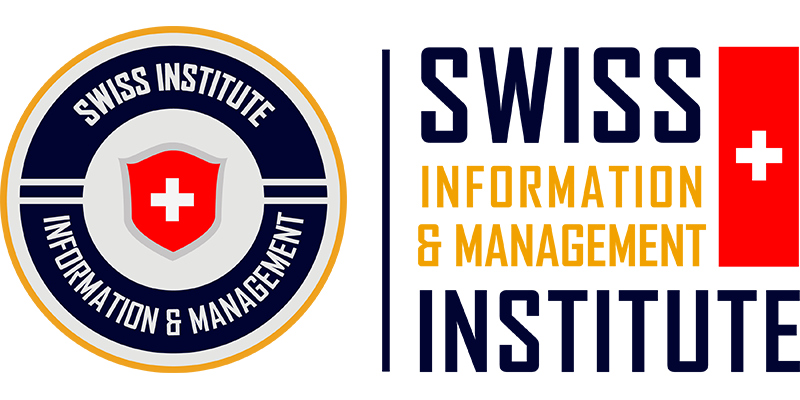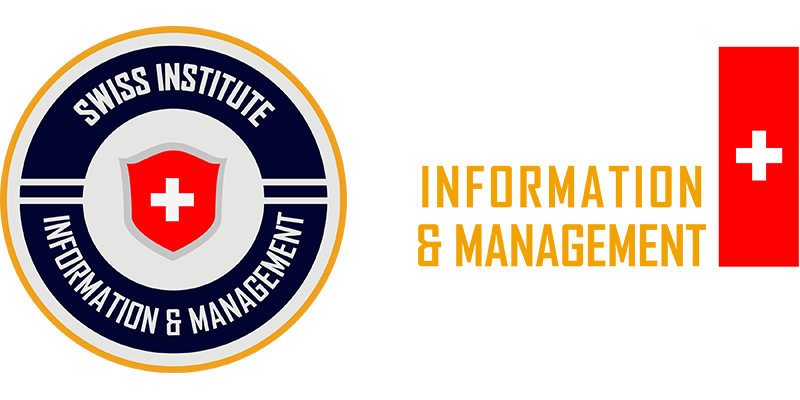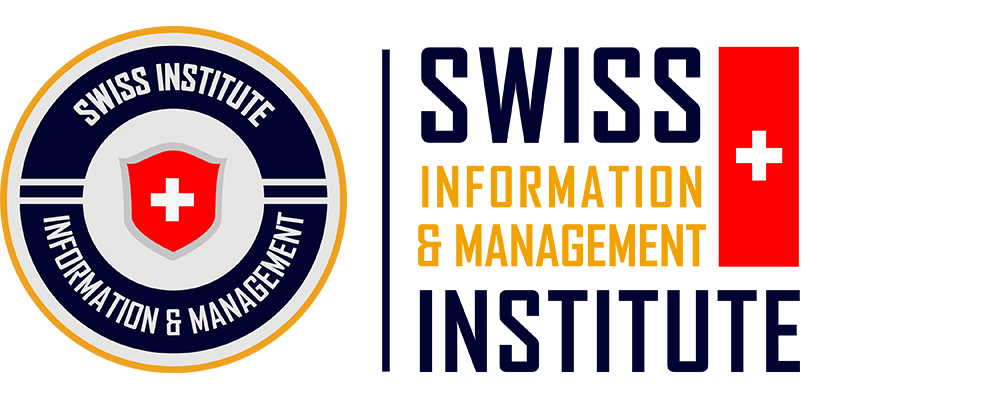Master of Science in Artificial Intelligence
SIMI Swiss Direct™ – Direct delivery only – non-joint programs, no franchises, no intermediaries
The Master of Artificial Intelligence (Swiss Triple Crown) program does not merely teach you how to use AI tools—it trains you to become a designer of the digital future. The program combines algorithmic thinking, implementation engineering, and AI system governance to turn ideas into real-world products that are safe, ethical, and impactful for businesses. From models to MLOps, from raw data to strategic decisions—you’ll learn how to generate sustainable value with AI.
Uniquely, the program integrates the UK National Occupational Standard framework for the Artificial Intelligence (AI) Data Specialist – Level 7, a government-approved role in the UK (Recognition Code ST0763) with an average salary of £49,873/year (2022 data). Typical roles include: Data Scientist, Machine Learning Engineer, AI Engineer, Director of AI.
With Triple Crown Recognition (SIMI Swiss + Partner University + UK Level 7 Diploma), graduates earn not only an academic degree but also internationally recognized proof of professional competency.
Along with globally recognized qualification, the SIMI Swiss Master program understands what students need:
- 03 independent qualifications with 03 distinct post-graduation pathways: from SIMI Swiss, from a Partner University, and from the UK National Competency Diploma.
- Specialized AI program aligned with the UK national competency framework for the role of Artificial Intelligence (AI) Data Specialist – Level 7, equivalent to Master’s level. Average salary: £49,873/year.
- The Swiss Student Card confirms official Swiss student status and eligibility with SIMI Swiss
- SIMI Swiss Direct™ – Direct delivery only – non-joint programs, no franchises, no intermediaries
- Participation in international networking and colloquium activities.
- Academic Support While Studying
- Tuition fee support provided by Swiss EduFund
Qualifications within an Master of Artificial Intelligence Program:
- Master of Artificial Intelligence from Swiss Information and Management Institute
- Level 7 Diploma in Artificial Intelligence from OTHM, an Ofqual-regulated Awarding Body in the UK (610/4802/1)
- Master of Science (MS) in Data Science and Artificial Intelligence from European Global Institute of Innovation & Technology (EU Global)
International Accreditation
SIMI is accredited at both the institutional and programmatic levels by ASIC, HEAD, ISO 21001:2018, OTHM, and Qualifi, which is recognized by Ofqual.
Multiple Qualifications with Partner University
Optimize the usability of qualifications for different learner groups through cross-recognition from the Partner University.
National Occupational Standards
Aligned with the Artificial Intelligence (AI) Data Specialist Standards (Recognition Code: ST0763), with an average salary of £49,873/year.
Academic & Research Support
The academic and research support system helps students overcome challenges so they can focus solely on excelling in their studies.
Courses & Learning Outcomes
1. Introduction to Artificial Intelligence (T/651/3604)
Overview
- Focuses on the foundational concepts, history, and applications of artificial intelligence (AI) across industries.
- Examines the role of AI in solving problems, automating tasks, and driving innovation in the modern world.
Unit Aims
- Understand the fundamental concepts and approaches in AI.
- Be able to apply search algorithms in AI problem-solving.
- Understand the principles of knowledge representation and reasoning in AI.
- Be able to apply machine learning techniques in AI.
- Understand the ethical and societal implications of AI.
Course Details
This course is accredited and mapped to National Occupational Standards. It can also be accumulated towards earning a Master Award from SIMI Swiss if taken independently.
- View details on Learning Outcomes, Topics, and Suggested Readings HERE.
2. Artificial Intelligence and Sustainability (D/651/3607)
Overview
- Explores how AI can address global sustainability challenges, including resource management, climate change, and environmental protection.
- Focuses on innovative AI-driven solutions that promote sustainable practices and ethical growth.
Unit Aims
- Develop the ability to analyze the role of AI in promoting sustainability and environmental responsibility.
- Critically evaluate AI applications in addressing sustainability challenges.
- Understand tools and approaches for implementing AI-driven sustainable solutions.
Course Details
This course is accredited and mapped to National Occupational Standards. It can also be accumulated towards earning a Master Award from SIMI Swiss if taken independently.
- View details on Learning Outcomes, Topics, and Suggested Readings HERE.
3. Ethics, Fairness and Explanation in Artificial Intelligence (F/651/3608)
Overview
- Examines ethical challenges in AI, including fairness, transparency, bias mitigation, and explainability of AI decisions.
- Focuses on the development of responsible AI systems that align with societal and regulatory expectations.
Unit Aims
- Develop the ability to analyze ethical and fairness issues in AI applications.
- Critically evaluate strategies for ensuring transparency, bias reduction, and accountability in AI.
- Understand tools and approaches for building explainable and ethical AI systems.
Course Details
This course is accredited and mapped to National Occupational Standards. It can also be accumulated towards earning a Master Award from SIMI Swiss if taken independently.
- View details on Learning Outcomes, Topics, and Suggested Readings HERE.
4. Deep Learning (T/651/3613)
Overview
- Focuses on advanced concepts and techniques in deep learning, including neural networks, model training, and real-world applications.
- Examines how deep learning powers breakthroughs in areas such as computer vision, natural language processing, and predictive analytics.
Unit Aims
- Develop a deep understanding of neural network architectures and training methodologies.
- Critically evaluate deep learning applications in solving complex problems.
- Understand tools and frameworks for designing and implementing deep learning models.
Course Details
This course is accredited and mapped to National Occupational Standards. It can also be accumulated towards earning a Master Award from SIMI Swiss if taken independently.
- View details on Learning Outcomes, Topics, and Suggested Readings HERE.
5. Intelligent Agents (K/651/3600)
Overview
- Explores the design and development of intelligent agents that perceive their environment and make autonomous decisions.
- Focuses on real-world applications of intelligent agents in robotics, automation, and decision-making systems.
Unit Aims
- Develop the ability to analyze the behavior and applications of intelligent agents.
- Critically evaluate strategies for designing and implementing autonomous systems.
- Understand tools and techniques for creating adaptive, intelligent agents in dynamic environments.
Course Details
This course is accredited and mapped to National Occupational Standards. It can also be accumulated towards earning a Master Award from SIMI Swiss if taken independently.
- View details on Learning Outcomes, Topics, and Suggested Readings HERE.
6. Research Methods (T/618/0798)
Overview
- Provides a comprehensive understanding of research methodologies and their application in AI studies.
- Focuses on designing research projects, collecting and analyzing data, and presenting findings effectively.
Unit Aims
- Develop the ability to design and execute AI-focused research projects.
- Critically evaluate research methods and their relevance to solving AI challenges.
- Understand tools and techniques for analyzing data and presenting research outcomes.
Course Details
This course is accredited and mapped to National Occupational Standards. It can also be accumulated towards earning a Master Award from SIMI Swiss if taken independently.
- View details on Learning Outcomes, Topics, and Suggested Readings HERE.
7. Master’s Capstone Project (S/68/9899)
The Capstone Project is a comprehensive, final assignment that Master of Artificial Intelligence students undertake at the end of their program. It is designed to integrate the knowledge and skills they have developed throughout their studies. Unlike traditional exams, the Capstone Project requires students to apply their learning to solve real-world problems or challenges in the field of artificial intelligence.
Key Features of a Capstone Project:
- Practical Application: The project focuses on solving real-world challenges using AI technologies, such as machine learning models, intelligent systems, or AI-driven solutions for industry problems.
- Integration of Knowledge: Students must synthesize concepts from multiple courses, demonstrating their ability to develop and implement AI solutions effectively in a professional context.
- Research Component: The project involves conducting substantial research, gathering and analyzing data, and presenting evidence-based conclusions and innovative recommendations.
- Collaboration: Some projects are team-based, reflecting the collaborative nature of AI development, while others allow students to pursue an individual deep dive into a specialized area of interest.
- Presentation and Defense: Upon completion, students present their project to a panel of faculty members or industry professionals, defending their methodologies, findings, and the impact of their AI solution.
Benefits of a Capstone Project:
- Real-World Experience: Students gain hands-on experience by addressing actual AI challenges, from automation to data-driven problem-solving.
- Skill Development: The project enhances critical thinking, coding, problem-solving, research, and communication skills essential for AI professionals.
- Portfolio Piece: The completed project serves as a showcase of students’ capabilities, strengthening their resumes for job interviews and career opportunities.
- Networking: Projects often involve collaboration with industry experts, providing valuable opportunities to build connections within the AI and tech sectors.
In essence, the Capstone Project is the culmination of the Master of Artificial Intelligence program, allowing students to showcase their expertise, creativity, and readiness to tackle complex AI challenges in professional environments.
Entry requirements & Learning methods
1. Entry Requirements
In addition to the entry requirements, candidates applying to the program are also assessed for their suitability by the admissions committee before joining the program to ensure that they can acquire and benefit from the program.
Entry requirements:
To enroll this program, learners must possess one of the criteria below:
- A Bachelor’s qualification in Majors from accredited universities;
- Or a Level 6 EQF diploma or an equivalent qualification from organizations that are authorized to issue qualifications and have been accredited.
English requirements:
If a learner is not from a predominantly English-speaking country, proof of English language proficiency must be provided.
- Common European Framework of Reference (CEFR) level B2 or equivalent;
- Or A minimum TOEFL score of 101 or IELTS 5.5; Reading and Writing must be at 5.5 or equivalent.
Please note:
- SIMI Swiss does not accept entry qualifications from counterfeit universities, Diploma Mills, or universities accredited by unreliable accreditation agencies.
- SIMI reserves the right to make admissions decisions based on the requirements of recognized agencies and the global quotas of the program.
2. Learning methods
Learners study directly with SIMI Swiss – not through joint programs, franchises, or intermediaries, ensuring the program remains original and consistent in quality.
The program lasts 2 years and is delivered through a combination of Live Classes with local tutors (where applicable).
- Learn more about the overview of enrolling in Live Classes at SIMI Swiss [Video HERE]
- Learn more about the Effective of SIMI Pedagogy [Video HERE]
During the Capstone Project phase, learners will study under the coordination and delivery of the program by SIMI Swiss’s official representative partner in Malta (Europe), enhancing the global learning experience and expanding international connections with faculty, experts, and fellow learners from various regions.
3. Academic Support
We understand that pursuing an accredited postgraduate program can be both exciting and challenging, especially for busy adult learners. To help you overcome these challenges, we’ve created the SIMI Swiss Supporting Systems, designed to guide you through any difficulties during your studies.
For a full overview of the support available, be sure to watch our informative videos, offering help at every stage of your academic journey.
Program accreditations
1. Accreditation review guidelines by SIMI Swiss
SIMI is the first higher education institute in Zug, Switzerland, to achieve comprehensive international accreditations at both the organizational and program levels. The video below guides you through the step-by-step process of verifying and checking SIMI Swiss's accreditations and recognitions. All SIMI Swiss programs, owned by SIMI Swiss, benefit from these quality standards.
- Watch this video to learn how to verify SIMI Swiss's accreditations and recognitions HERE.
- View the complete accreditation system of SIMI Swiss HERE.
Reference:
- Sample Certificate of Master of Artificial Intelligence: HERE
2. Refer to SIMI Swiss Program information in SVEB Switzerland
SVEB Switzerland (Schweizerischer Verband für Weiterbildung) is the Swiss Federation for Adult Learning and serves as the national umbrella organization for adult education in Switzerland. SVEB is recognized as the leading authority in Switzerland for promoting and supporting lifelong learning and professional development through a wide range of educational programs and certifications.
Benefits of the SIMI Swiss Programs Published in SVEB:
- Officially on the Swiss federal portal: Being published in SVEB gives the SIMI Swiss program official publication in Switzerland, validating its quality and adherence to Swiss educational standards.
- Increased Credibility: Membership and listing with SVEB enhance the credibility of the SIMI program, making it more attractive to prospective students and employers who value SVEB-approved programs.
- Professional Advancement: Programs listed with SVEB are often aligned with the needs of the Swiss job market, increasing graduates' employability and supporting their career progression within Switzerland.
- Access to a Wider Network: Association with SVEB connects the SIMI Swiss program to a broader network of educational institutions, professionals, and employers across Switzerland, offering opportunities for collaboration, networking, and knowledge exchange.
- Compliance with Swiss Standards: SVEB ensures that SIMI Swiss programs meet high educational standards, including up-to-date content, qualified instructors, and effective teaching methods, enhancing the overall learning experience for students.
- Support for Lifelong Learning: SVEB’s focus on adult education means the SIMI Swissprogram aligns with lifelong learning principles, supporting students in their ongoing professional development.
Check the SIMI programs on SVEB HERE.
3. Accreditation & Recognition of OTHM
About the Ofqual UK.Gov awarding body OTHM:
- Recognized as an organization by the educational authority of the United Kingdom, Ofqual (UK.Gov). Recognition Number: RN5284. Refer to the recognition information CLICK HERE
- OTHM Level 7 Diploma in Artificial Intelligence is accredited with the Ofqual UK.Gov code 610/4802/1. Refer to the accreditation information CLICK HERE
Reference:
- Guidelines of how to check the recognition of OTHM: CLICK HERE
- Why Level UK offers optimal educational effectiveness for learners?: CLICK HERE
- The meaning of Level System in the labor market in the context of global labor mobility: CLICK HERE
- The meaning of Level System in global diploma recognition: CLICK HERE
4. Accreditation & Recognition of EU Global
About European Global Institute of Innovation & Technology (EU Global):
- European Global Institute of Innovation and Technology (EU Global) is a higher education institution accredited by the Malta Further and Higher Education Authority (MFHEA), recognized under the Malta Qualifications Framework (MQF), and its qualifications are acknowledged across Europe through the European Qualifications Framework (EQF).
- EU Global is accredited by the Council for Higher Education Development (CHED), USA.
- EU Global is recognized by WES.
- EU Global is internationally recognized by the National Information Centre (ENIC-NARIC).
- EU Global is a member of the Association of Professional Higher Education Institutes and Consultants (APHEI), USA.
References:
You will get
Swiss Triple Crown
National Occupational Standard
Integrating AI and Technology into Colloquium
Swiss Student Card
Academic Support
All Master' Programs
Fully Accredited
Multi Recognition
Master of Business Administration
Powered by BizSchool of Zug
Master of Arts in Project Management
Powered by BizSchool of Zug
Master of Arts in Education Management & Innovation Pedagogy
Powered by Swiss EduSchool
Master in TESOL
Powered by Swiss EduSchool
Master of Arts in Human Resource Management and Talent Development
Powered by BizSchool of Zug
Master of International Business Law
Powered by Law Institute of Switzerland
Master of Artificial Intelligence
Powered by IT Institute of Switzerland
Master of Psychology
Powered by Swiss PsySchool
Master of Science in Logistics and Supply Chain Management
Powered by LSCM of Switzerland


